How to Hang Curtains Like a Pro
Want to elevate your space? Here is how to hang your curtains with tips from experts.
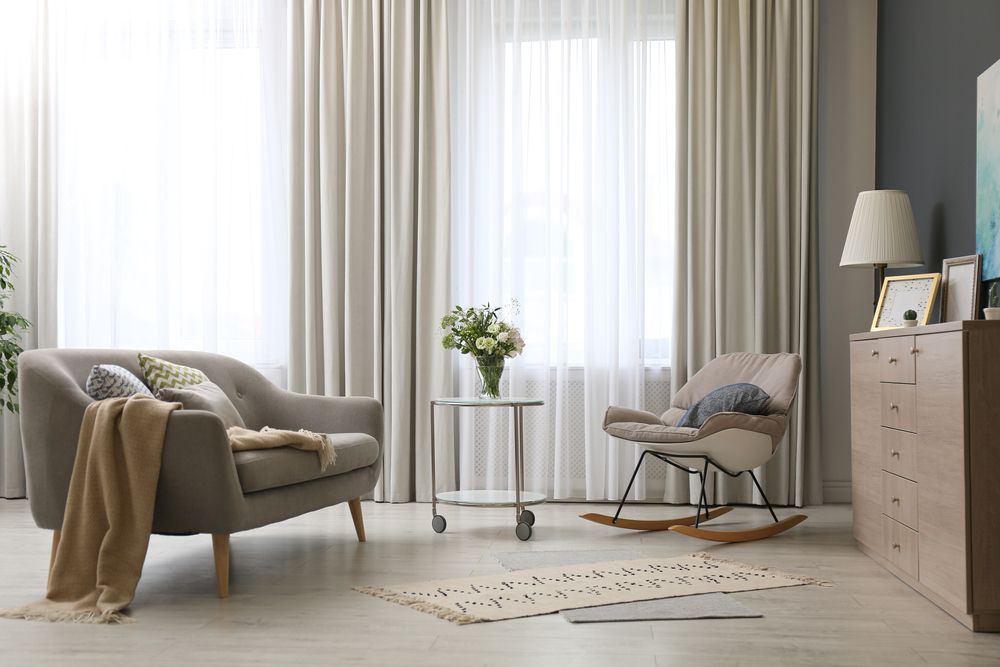
The secret to creating a well-designed and inviting space involves paying attention to every detail, including the correct window treatments. Curtains not only add style to your interiors but also serve functional purposes such as providing privacy, controlling light, and insulating your home. The key to success is to choose the appropriate curtains and know how to hang them.
In this post, we share expert tips and tricks on hanging curtains in various settings. From trendy styles to curtain rod height and width considerations, you'll learn how to elevate your decor with curtains like a pro.
Using curtains to improve a home's aesthetic
Curtains are often an afterthought when it comes to decorating. However, they play a critical role in enhancing a room's overall aesthetic. Window treatments can add a bold statement or subtle complement to the existing decor, tying the entire room together to create a cohesive and inviting ambiance.
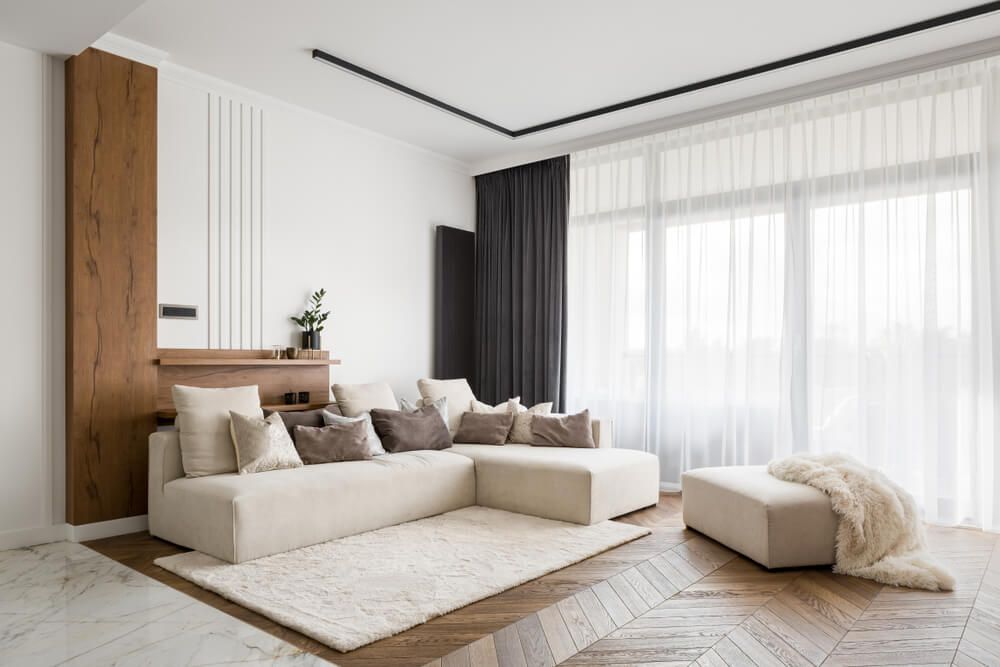
Beyond their aesthetic value, curtains provide essential functionality. They offer control over natural light, allowing you to adjust the amount of brightness and privacy in a room. Sheer curtains can filter sunlight, creating a soft glow, while blackout curtains are perfect for bedrooms or media rooms, blocking out unwanted light completely.
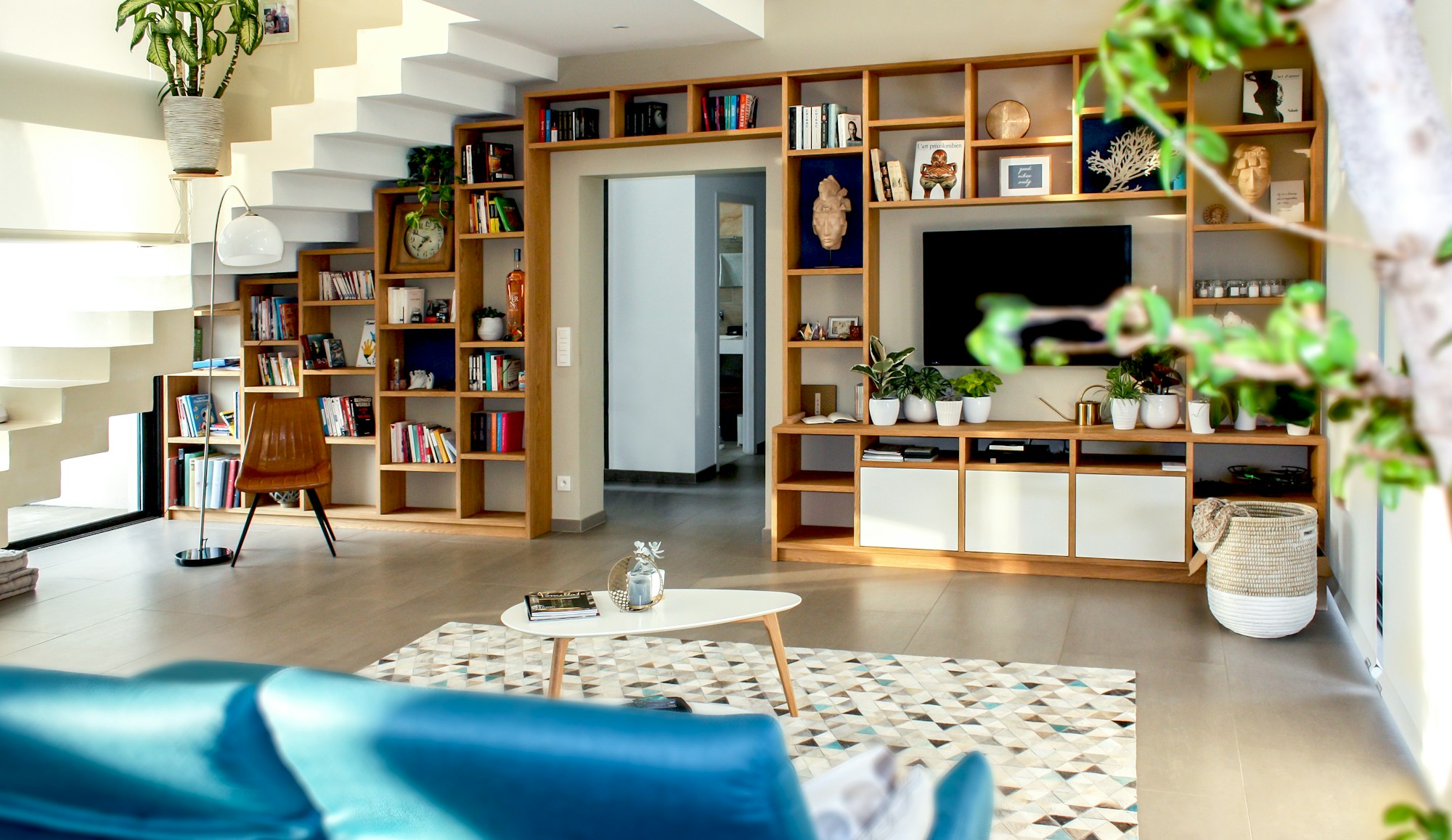
Curtains can also contribute to your home's energy efficiency. Thick, insulated curtains help regulate room temperature by reducing heat loss during winter and blocking heat gain during summer. This enhances comfort and reduces energy consumption, leading to lower utility bills.
Chose the right curtain style
With so many different styles of curtains available on the market, you can easily find ones that perfectly match any design preference. Whether it's the sleek look of contemporary curtains or the Bohemian charm of flowing sheer fabrics, curtains can be customized to suit your preferred style.
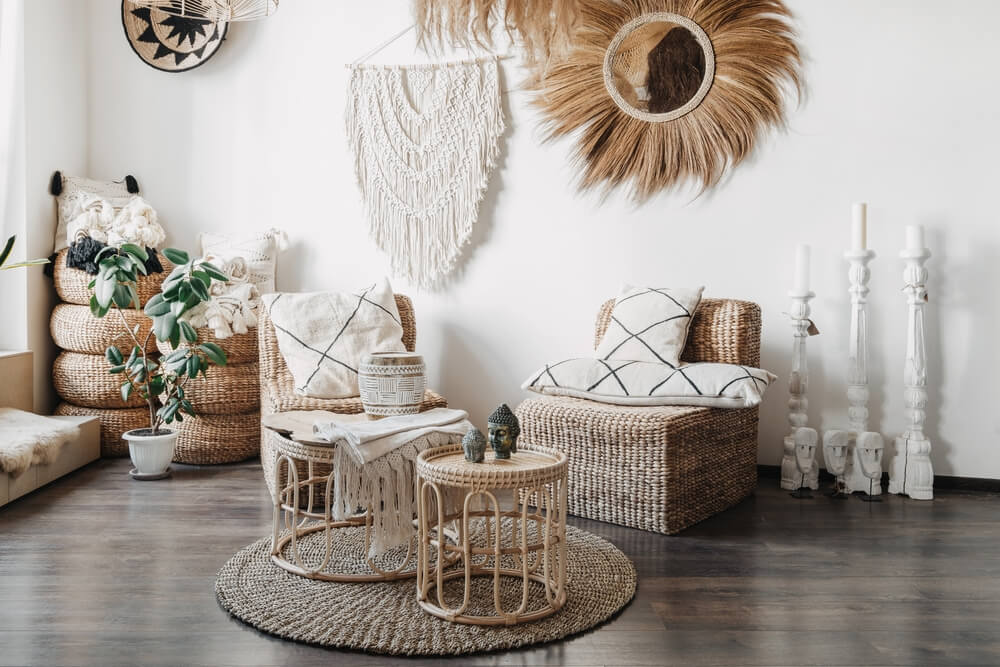
Before you start hanging curtains, determine the overall style of the room. This will help you select curtains that align with the existing aesthetic and enhance the desired atmosphere. Here are a few popular curtain styles:
- Sheer curtains: These curtains are let in natural light while maintaining privacy, making them a popular choice for many. They work well in contemporary and minimalistic interiors.
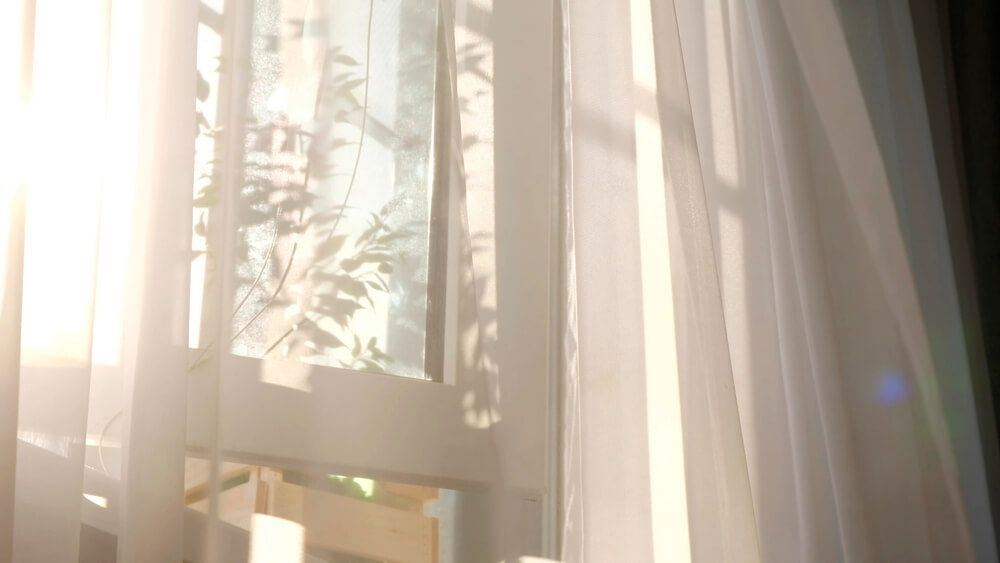
- Blackout curtains: These curtains are perfect for bedrooms and home theaters because they block out light and provide extra insulation.
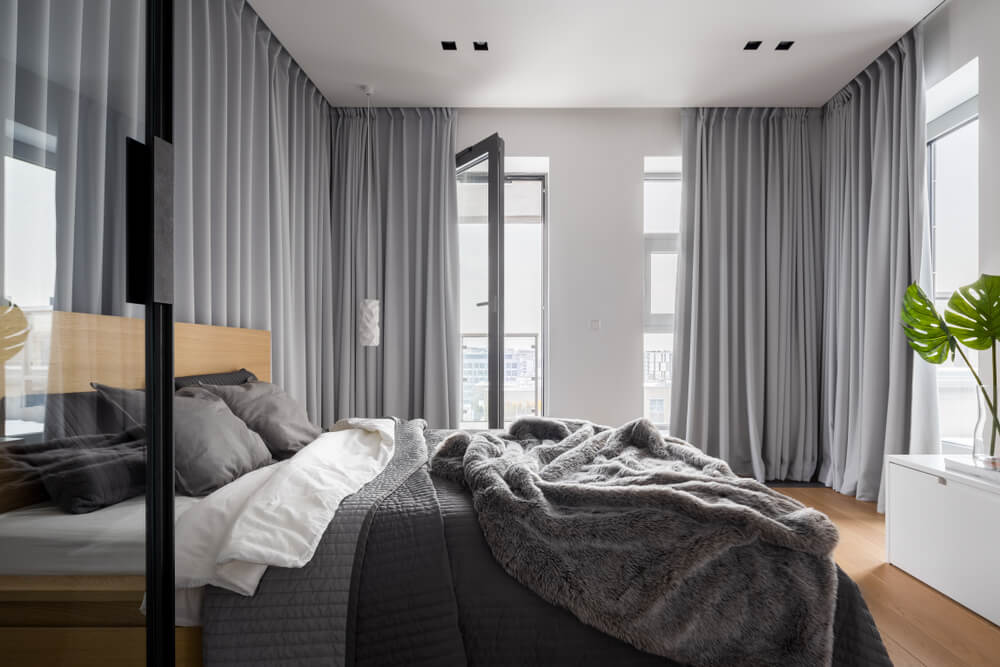
- Layered curtains: Combining different types of curtains, like sheer and blackout curtains, can create a luxurious look while offering privacy and style.
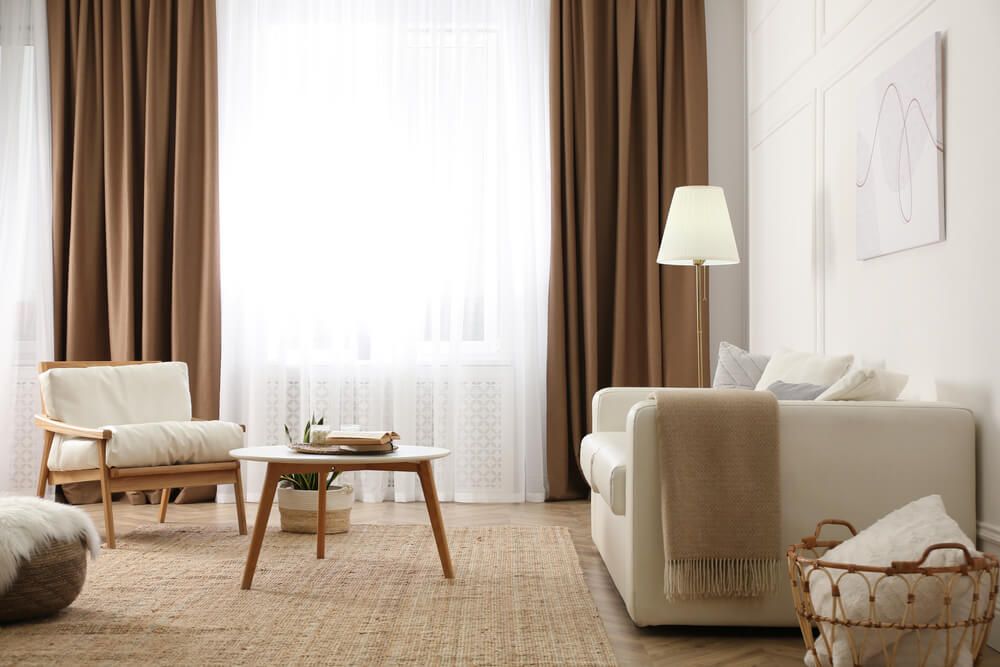
- Grommet curtains: Curtains with grommets (metal rings that slide onto a rod) are great for creating a modern, streamlined look that works for contemporary interiors.
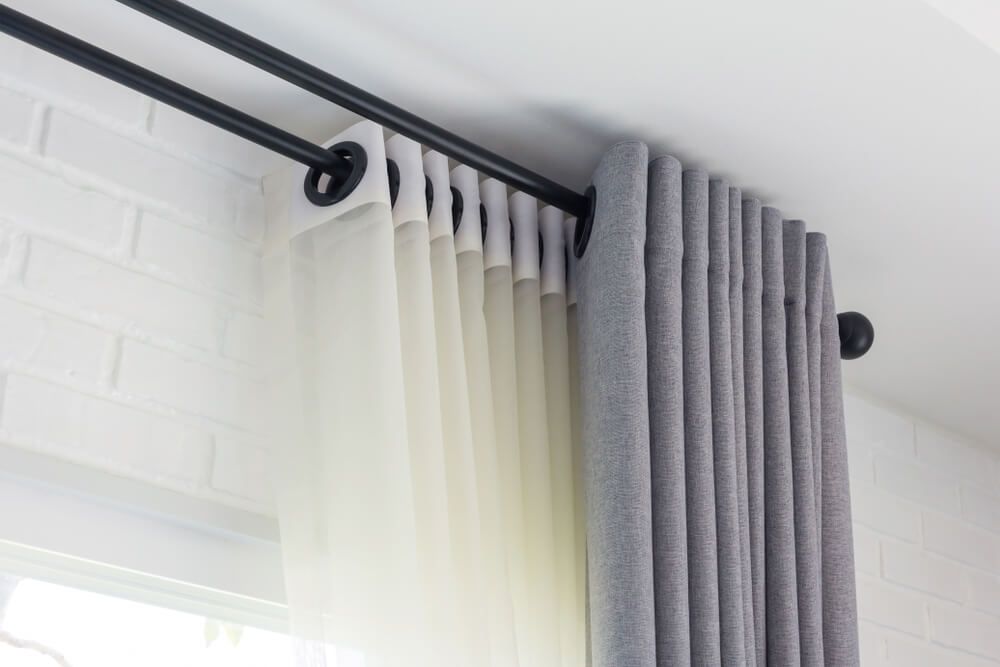
- Rod pocket curtains: Curtains with a sewn pocket at the top that you can slide your rod through offer a classic and traditional appearance and are ideal for formal settings.
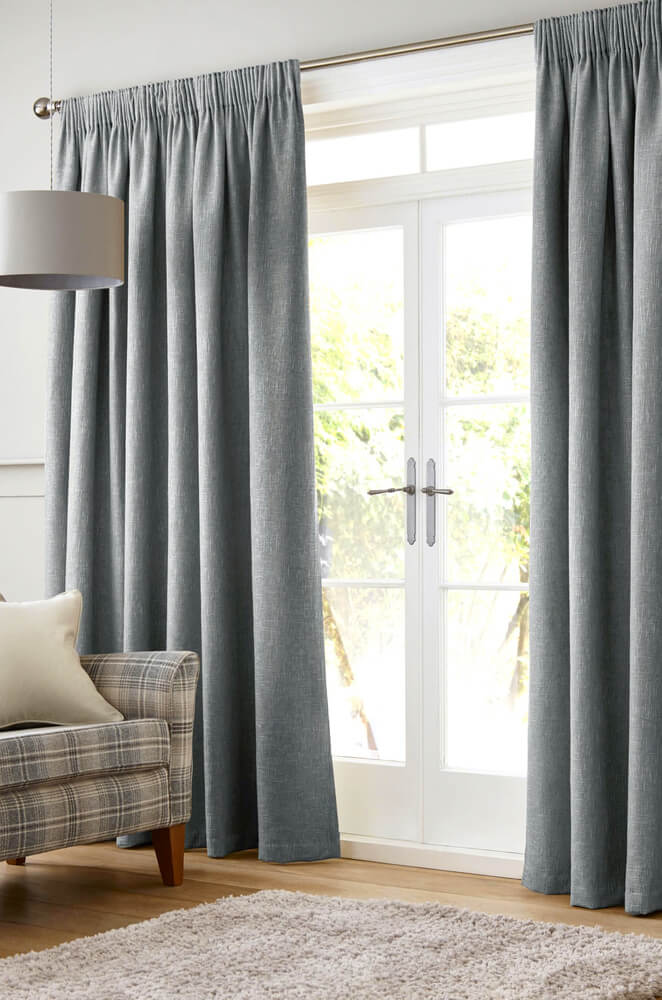
- Tab top curtains: Curtains with fabric loops sewn into the top create a relaxed and casual look. They are perfect for informal and relaxing spaces.
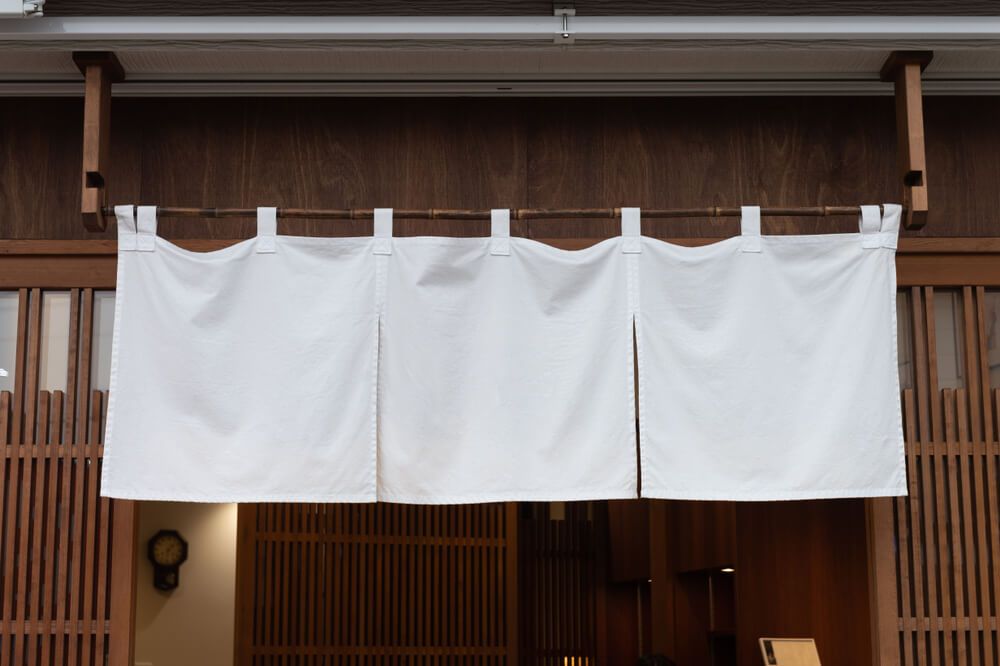
- Pleated curtains: Pleated curtains are a great way to add a sophisticated touch to your room. They are versatile and can suit various interior design styles.
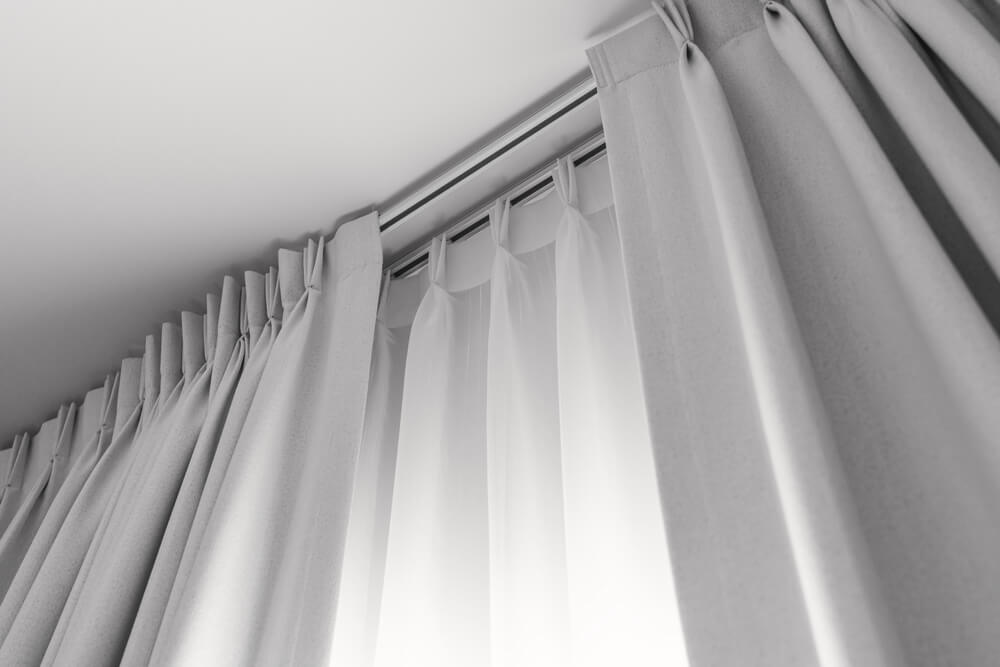
Consider curtain length and width
When choosing the correct curtain lengths and widths, you need to consider the height of your curtain rod and the width of the window. Determining these two settings will ensure that your curtains fit properly and enhance your room's overall aesthetic.

The length of your curtains can dramatically impact the look and feel of the space. When it comes to width, ensure that your curtains are wide enough to cover the entire window when closed. Choose curtains that are 1.5 to 3 times wider than the window width for a fuller look. Here are a few tips to keep in mind:
- Floor-length curtains: These curtains touch the floor and create a dramatic and luxurious effect. They work well in formal living rooms, dining areas and bedrooms.
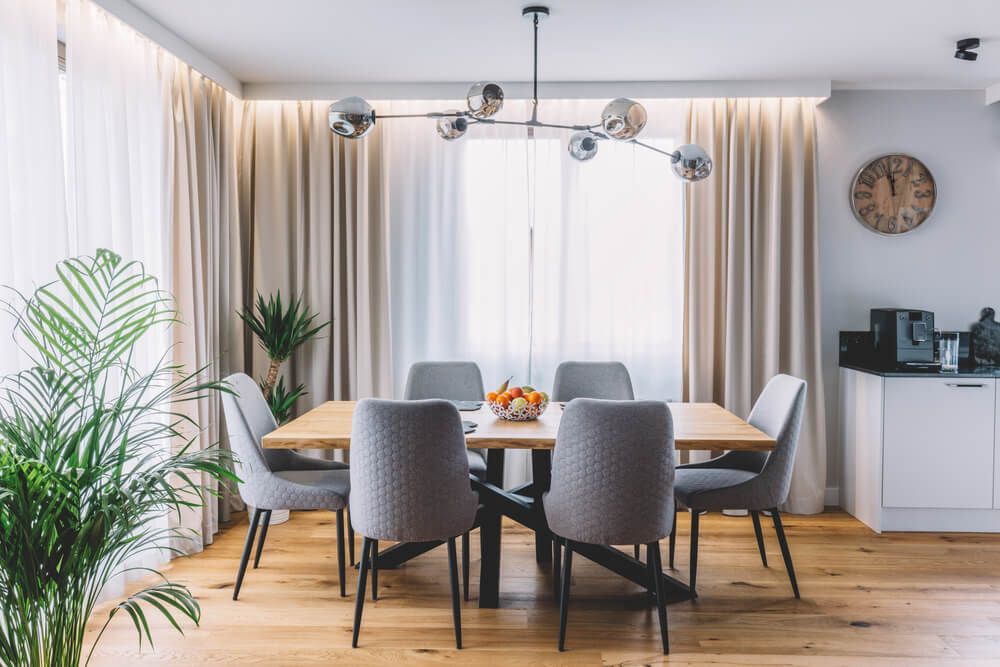
- Apron-length curtains: This style falls just below the window sill, providing a clean and tailored appearance. They are suitable for kitchens, bathrooms and casual spaces.
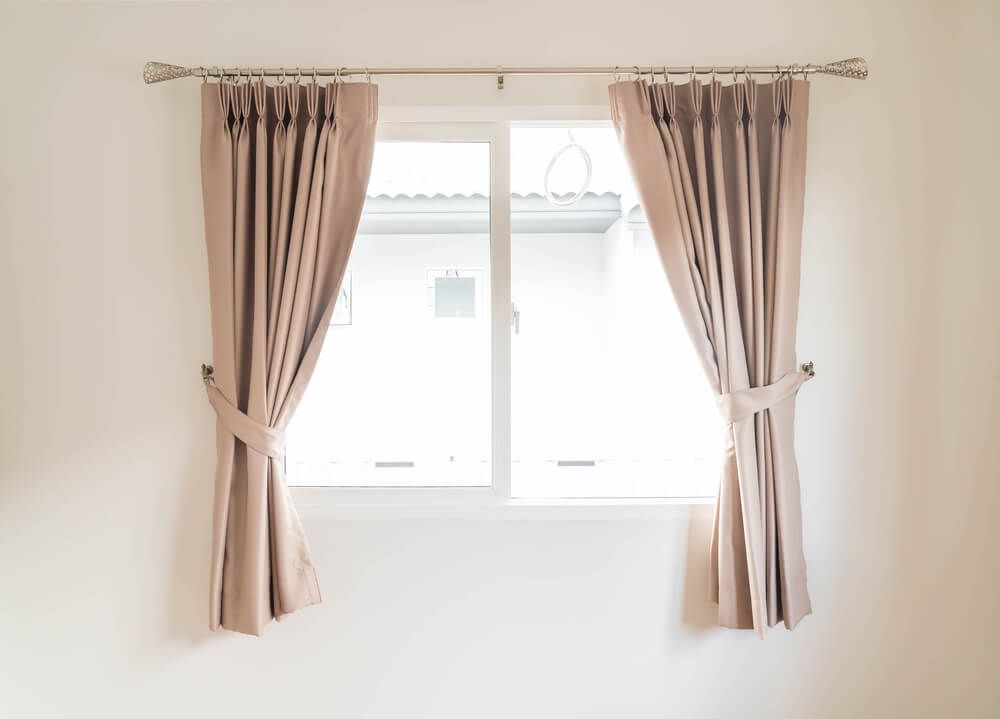
- Cafe curtains: Cafe curtains cover only the bottom half of the window, adding privacy while allowing natural light to enter. They are commonly used in kitchens and breakfast nooks.
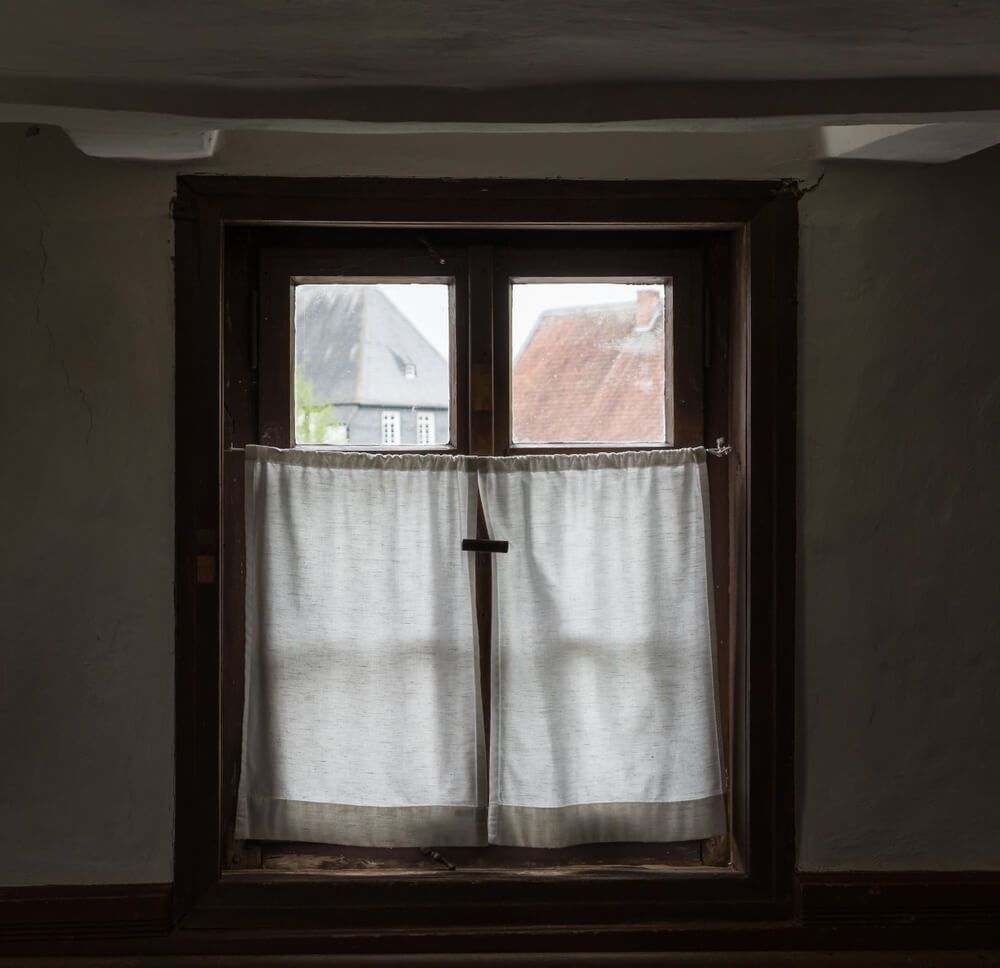
Selecting colors and fabrics
The color and pattern of your curtains can significantly impact your space's overall mood and aesthetic. Consider the room's existing color palette and choose curtains that blend harmoniously or make a bold statement as an accent Here are a few guidelines to help you make the right choice:
Neutrals: Neutral-colored curtains like whites, grays and beiges provide a timeless and versatile backdrop for any interior.
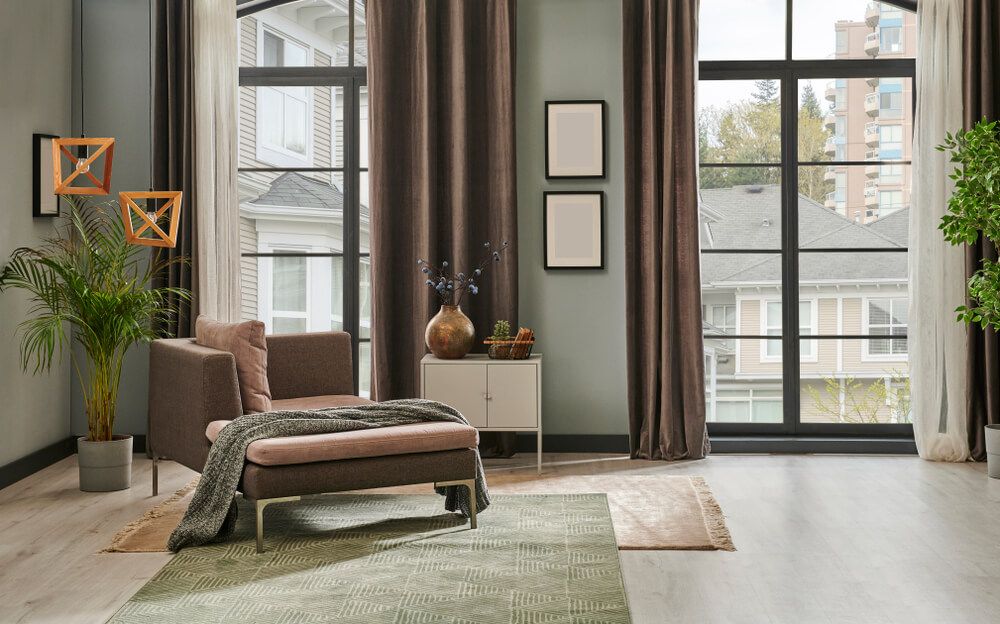
Bold and vibrant: If you want to make a statement, consider curtains in bold and vibrant colors. They can add personality and create a focal point in your room.
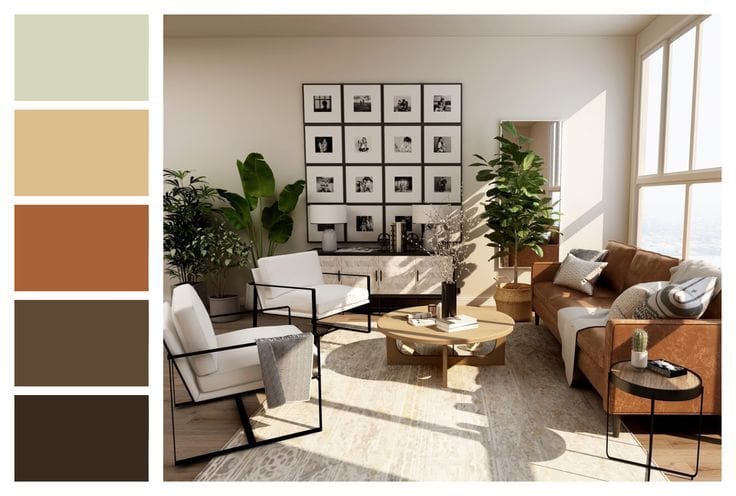
Patterns and prints: Subtle patterns can add depth to a room, while bold patterns can make a strong style statement. Floral, geometric, or striped designs are great for creating visual interest and adding texture. Ensure that the curtain pattern complements your existing furniture and decor elements.
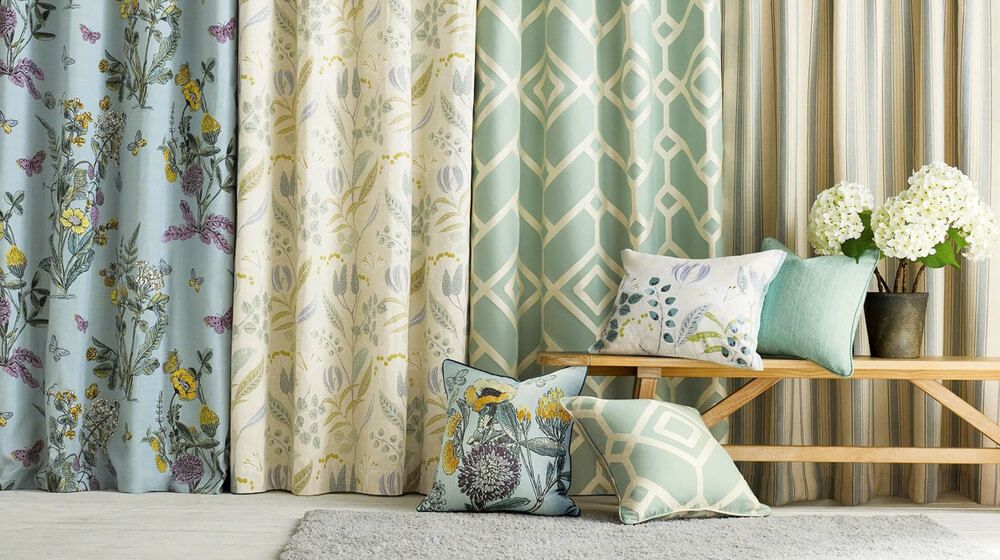
Texture: Experiment with different fabric textures, like silk, velvet, or linen, to add visual interest and dimension.
Tips for choosing rods and hooks
Choosing the appropriate curtain rods and hooks is necessary for ensuring your curtains hang properly and securely. The hardware you choose for your curtains can also affect how the curtains will look in your space. Here are some options to consider:
- Decorative rods: Decorative rods with finials (decorative end caps) can enhance the overall aesthetic of your curtains. Choose a rod finish that complements your room's hardware and fixtures.
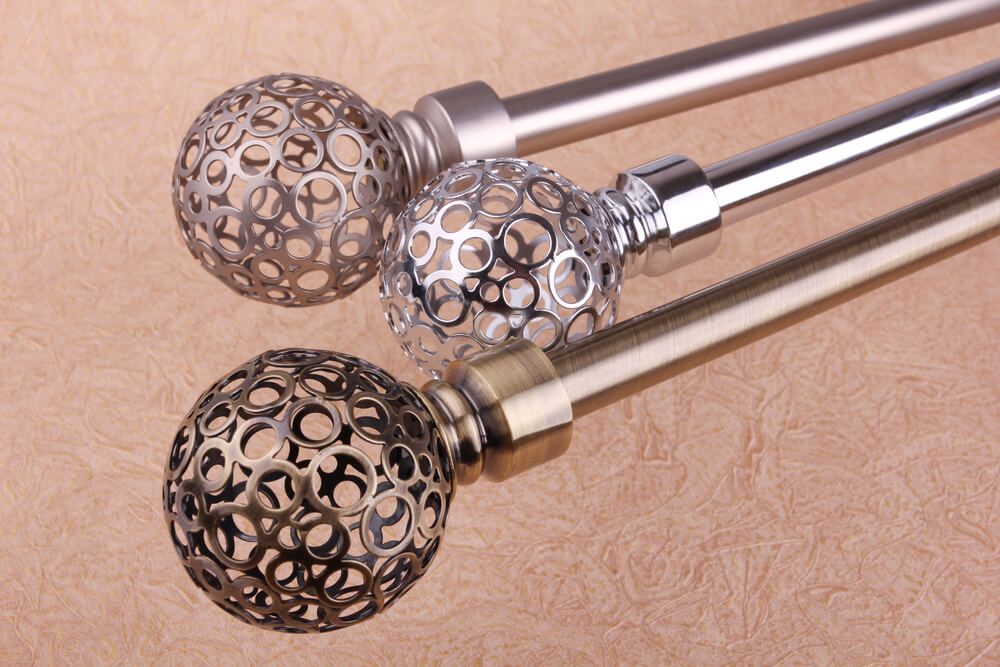
- Tension rods: Tension rods are adjustable and can be easily installed without drilling holes. They are suitable for lightweight curtains or temporary setups.
- Double rods: Double rods allow you to hang two layers of curtains, such as sheer curtains and heavier drapes, providing flexibility in light control and privacy.
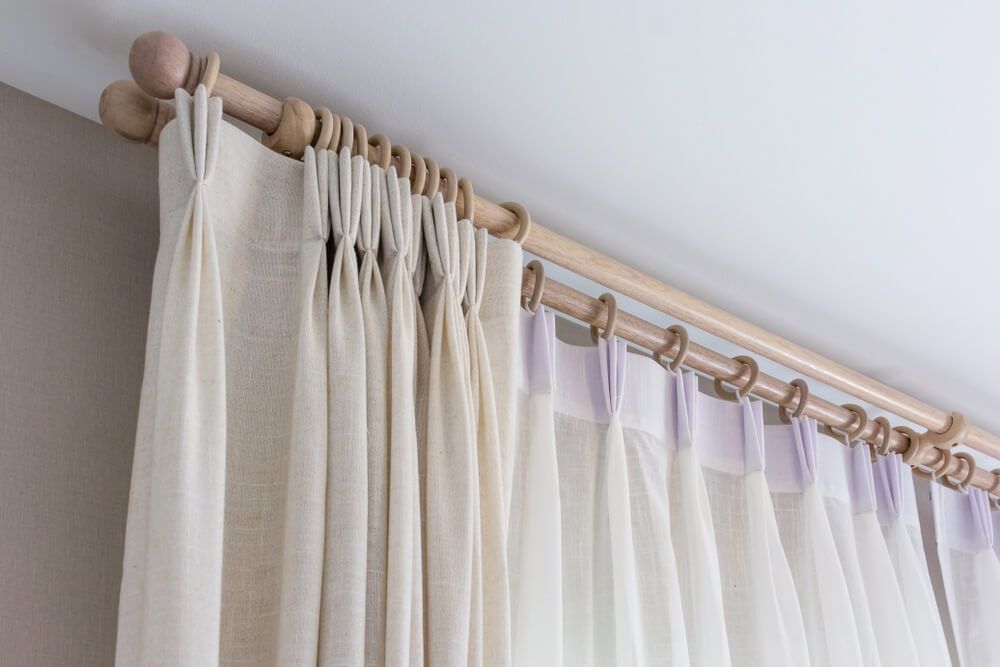
- Hooks and rings: Choose hooks that smoothly glide along the rod. This ensures your curtains open and close seamlessly.
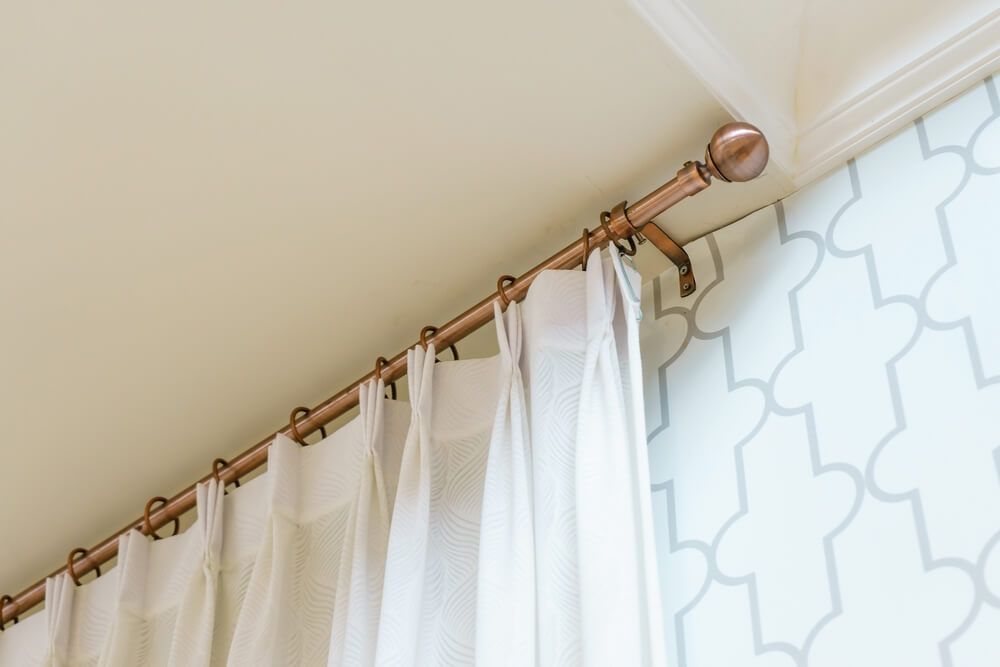
- Tiebacks: Add elegance to your curtains with decorative tiebacks that hold the curtains open when desired.
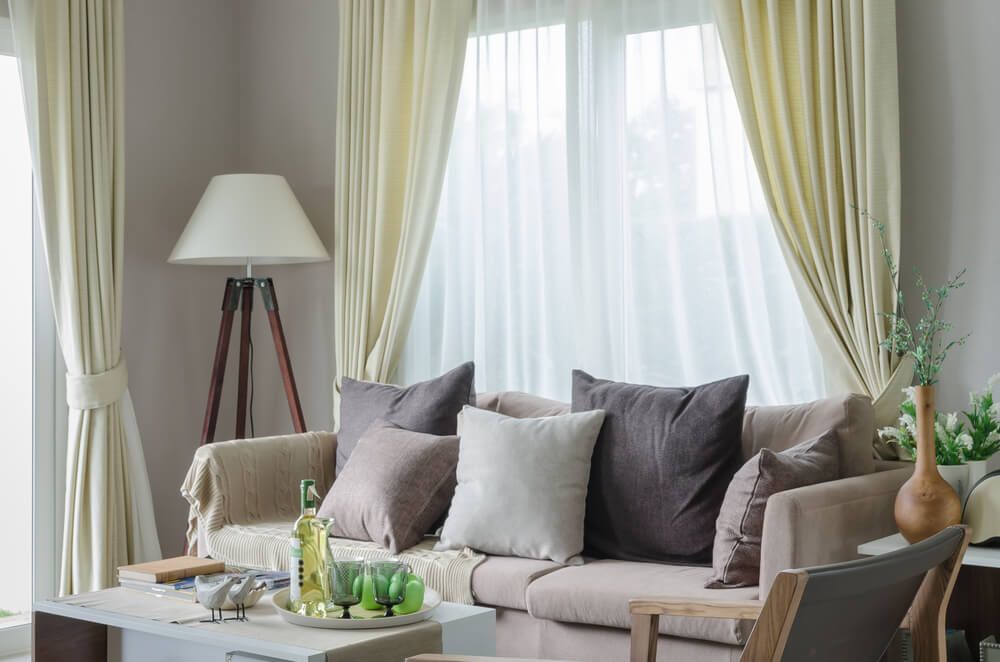
Make sure to measure correctly
As with any home project, accurate measurements are key to ensuring that your curtains look great and function properly. You should always measure before you buy or drill anything to avoid unnecessary damages or extra costs.
- Measure the width of your window and add a few extra inches on each side to allow the curtains to cover the entire window when closed and a luxurious look when the curtains are open.
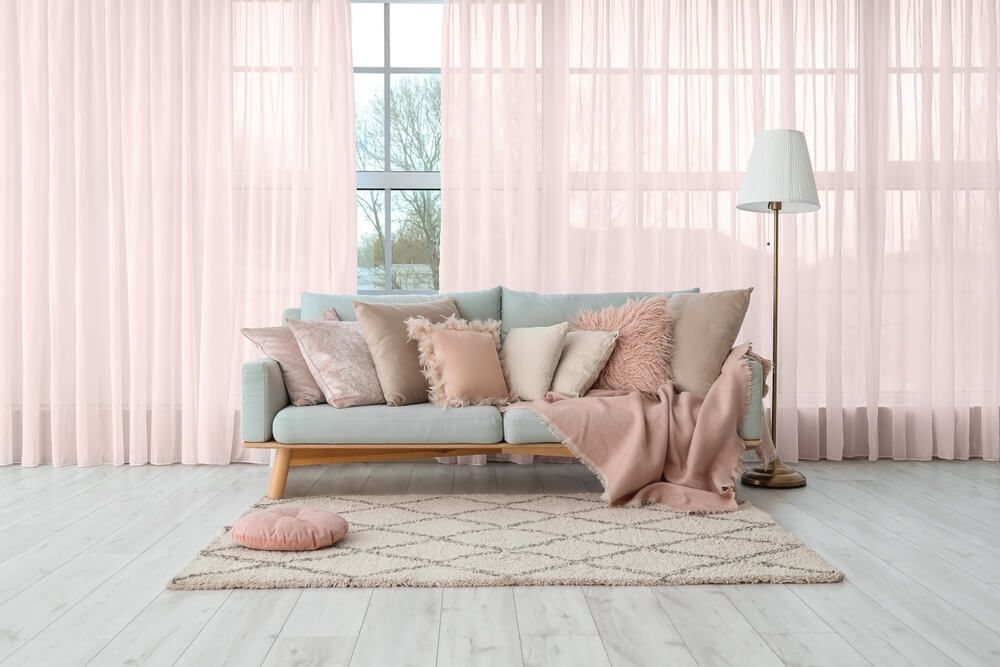
- For length, measure from the top of the rod to the desired point where you want your curtains to fall (e.g., floor length, apron length, etc.). For a classic look, let the curtains touch the floor. If you prefer a more contemporary look, curtains can hover just above the floor.
- Consider the curtain header (top portion) when measuring length. Headers can add a few extra inches, so account for this while measuring.
Conclusion
As you can see, curtains aren't just decorative elements. They can enhance a home's aesthetic appeal, soften the overall look, offer versatility in styling, provide light control and privacy and contribute to energy efficiency. Carefully chosen curtains can transform a space into a beautiful and inviting sanctuary.
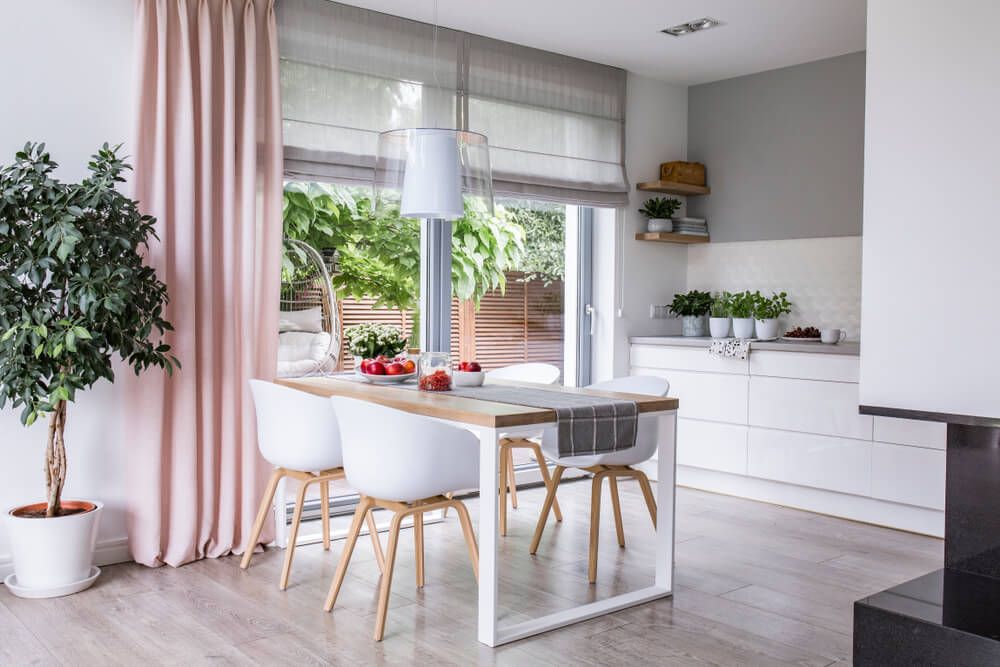
Hanging curtains involves careful consideration of the curtain style, length, width, colors and patterns. Correct measurements and suitable rods and hooks are also crucial elements of this process. By following our expert tips and tricks, you can achieve a stylish and functional window treatment that elevates the overall ambiance of your home. Happy curtain shopping!
FAQ
Can curtains help with energy efficiency in my home?
Yes, certain types of curtains, such as thermal or blackout curtains, can help improve energy efficiency by reducing heat transfer and blocking out sunlight. These curtains act as insulators, keeping your home cooler in the summer and warmer in the winter.
How do I care for and clean my curtains?
The care and cleaning instructions for curtains depend on the fabric. Most curtains can be spot-cleaned or gently vacuumed to remove dust. For machine-washable curtains, follow the manufacturer's instructions. For delicate or dry-clean-only fabrics, professional cleaning may be recommended.
Can I hang curtains in rooms with low ceilings?
Yes, you can hang curtains in rooms with low ceilings to create an illusion of height. Opt for curtains that start closer to the ceiling and extend to the floor. This draws the eye upward and gives the impression of taller windows and higher ceilings.
Are there any rules for mixing patterns when it comes to curtains and other textiles in a room?
When mixing patterns with curtains and other textiles, it's generally a good idea to vary the scale of the patterns. Pair larger-scale patterns with smaller-scale ones to create visual interest without overwhelming the space. Choose designs that share similar color palettes or complementary hues to ensure a cohesive and harmonious look.
How do I choose the right size curtain for my windows?
To choose the right size curtain, measure the width and length of your window and add some extra inches for fullness and coverage. When determining the length of your curtains, it's also important to consider the desired hanging style (e.g., just above the window frame or floor length).
